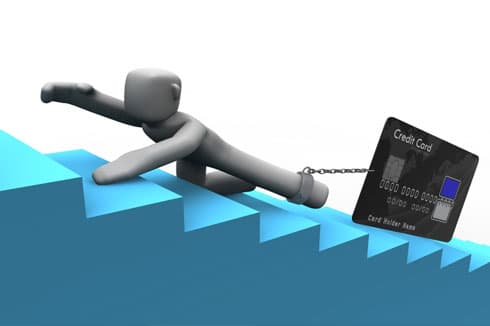The Facts About Non-Profit Credit Counseling

Get rid of your debt faster with debt relief
Choose your debt amount
Or speak to a debt consultant 844-731-0836
- 4 min read
How a Credit Counseling Firm Can Help You is Far More Important than the Firm's Tax Status.
Credit Counseling firms can be non-profit or for-profit. Which one is a better choice? Both non-profit credit counseling firms and for-profit firms work in the same manner and both charge fees. Focus on whether credit counseling is the right approach for you to resolve your debt and also on the reputation of any firm you consider hiring, not whether it is a non-profit or not.
Credit Counseling: A Popular Choice
Millions of Americans receive credit counseling every year. Some are looking for a way to get out of debt faster and at a lower cost and some are required to do so a part of their bankruptcy process. Because most consumers do not know a lot about credit counseling programs, they have a hard time deciding if credit counseling is the right process to address their debt problems. One factor consumers weigh is whether a consumer credit counseling service (CCCS) is a non-profit or for-profit business.
What is a Non-Profit?
Whether a credit counseling service is non-profit or for-profit does not indicate if the firm is better to work with, has superior customer service, works harder for you, or gives you better value for your dollar. You might think non-profit means the firm works solely in the public interest, like a church or charity, but that is not true. Non-profit indicates the tax status of a firm in the eyes of the IRS and state tax authorities. Non-profit does not mean that the service is free. Non-profit credit counseling firms charge fees for their programs. They can charge enrollment fees ans well as monthly maintenance fees, which is exactly the same as for-profit firms.
Quick tip
If you are trying to find the right debt relief options, contact one of Bills.com's pre-screened debt providers for a free, no obligation debt relief quote.
Non-profit Credit Counseling Firm’s Top Exec Compensation Exceeds $900,000
You may be surprised to learn how much the CEOs of non-profit credit counseling firms earn, and it may not be consistent with your ideas about non-profits. According to Non-profit credit advisers cash in; CEOs earn big as consumers struggle by Harvy Lipman, which cites the non-profit credit counseling firms’ 2009 federal tax returns as the source of the information, the top total yearly compensation for a CEO of a non-profit credit counseling firm was more than $918,000. "Some counseling agency officials are among the nation’s highest paid non-profit executives," Lipman wrote.
Because credit counseling firms collect fees from clients and contributions from creditors, it is safe to assume the source of these large salaries coming out of clients' pockets. Non-profit status clearly does not stop such credit counseling firms from paying huge salaries to top executives.
IRS Investigation
The IRS conducted a thorough investigation of non-profit credit counseling firms back in 2006. The 2006 IRS investigation Credit Counseling Compliance Project found that many credit counselors claimed IRS tax-exempt status while bringing in large profits, using various means to disguise those profits, and providing executives with excessive compensation when compared with the pay at other, comparably sized, non-profit organizations. As a result of its investigation, the IRS revoked many credit counselors' tax-exempt non-profit status, including many of the country's largest credit counseling providers.
The IRS updates on non-profits, The IRS page allows you to check the non-profit status of an organization. In May, 2011 the IRS revoked the non-profit status of six non-profit credit counseling firms. These actions by the IRS benefited consumers and the credit counseling industry by allowing more traditional CCCS programs to prosper, while forcing less scrupulous providers, such as AmeriDebt, out of business entirely.
Bills Action Plan
Today, non-profit and non-profit credit counseling firms split the credit counseling market. If you're considering hiring a credit counseling firm:
- Don't assign too much importance to a credit counseling firm’s non-profit or for-profit status.
- Understand that just because a credit counseling firm is a non-profit does not mean that it works harder for you or acts in your interest.
- Focus on what the specific credit counseling firms can do for you, what they charge, and how their reputations compare.
- Compare credit counseling to all the debt relief options available, to find the right solution for your individual situation.
VIDEO: Credit Counseling - What is Credit Counseling?

Get rid of your debt faster with debt relief
Take the first step towards a debt-free life with personalized debt reduction strategies.
Choose your debt amount
Or speak to a debt consultant 844-731-0836